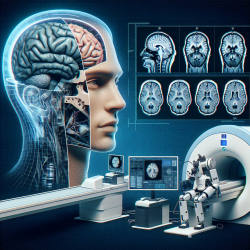In the world of neuroimaging, the balance between participant privacy and research efficacy is a delicate one. A recent study titled "Facing Privacy in Neuroimaging: Removing Facial Features Degrades Performance of Image Analysis Methods" sheds light on this intricate balance. This study explores the impact of removing facial features from MRI scans on the performance of image analysis methods, a critical concern for practitioners and researchers alike.
The Privacy Challenge in Neuroimaging
MRI scans provide detailed images of the brain, but they also capture facial features that could potentially identify participants. This raises significant privacy concerns, especially when sharing data across research institutions. To address these concerns, researchers have developed methods to remove or obscure facial features from MRI data. However, the study in question reveals that these methods can degrade the performance of automated image analysis tools.
Methods and Findings
The study evaluated three facial features removal (FFR) methods: QuickShear, FaceMasking, and Defacing. These methods were applied to datasets from patients with Alzheimer's disease (AD), multiple sclerosis (MS), and glioblastoma. The researchers assessed how these FFR methods affected clinically relevant outcome measurements using automated analysis tools.
- QuickShear: This method showed a failure rate of up to 17% in some datasets when used with automated tools like BraTumIA for glioblastoma volume measurement.
- FaceMasking: While it yielded higher normalized brain volumes (NBV) for AD patients, it also resulted in significant errors in glioblastoma volume measurements.
- Defacing: Although it had a high success rate in processing images, it led to systematic underestimation of glioblastoma volumes.
The study found that all three FFR methods affected the outcome measures differently. Automated analysis methods failed more frequently on FFR-processed images compared to full images. The intra-class correlation coefficient (ICC) for absolute agreement varied significantly across different conditions and FFR methods.
Implications for Practitioners
This study highlights an important consideration for practitioners working with neuroimaging data: while protecting participant privacy is crucial, it is equally important to ensure that data processing methods do not compromise research quality. Practitioners should be aware of the potential impacts of FFR on their analyses and consider these factors when designing studies or interpreting results.
The Path Forward
The findings suggest a need for further research to develop FFR methods that preserve both privacy and data integrity. Practitioners are encouraged to stay informed about advancements in this field through continuous education and collaboration with peers. By doing so, they can contribute to refining techniques that balance privacy concerns with the need for accurate clinical outcomes.
To read the original research paper, please follow this link: Facing Privacy in Neuroimaging: Removing Facial Features Degrades Performance of Image Analysis Methods.










